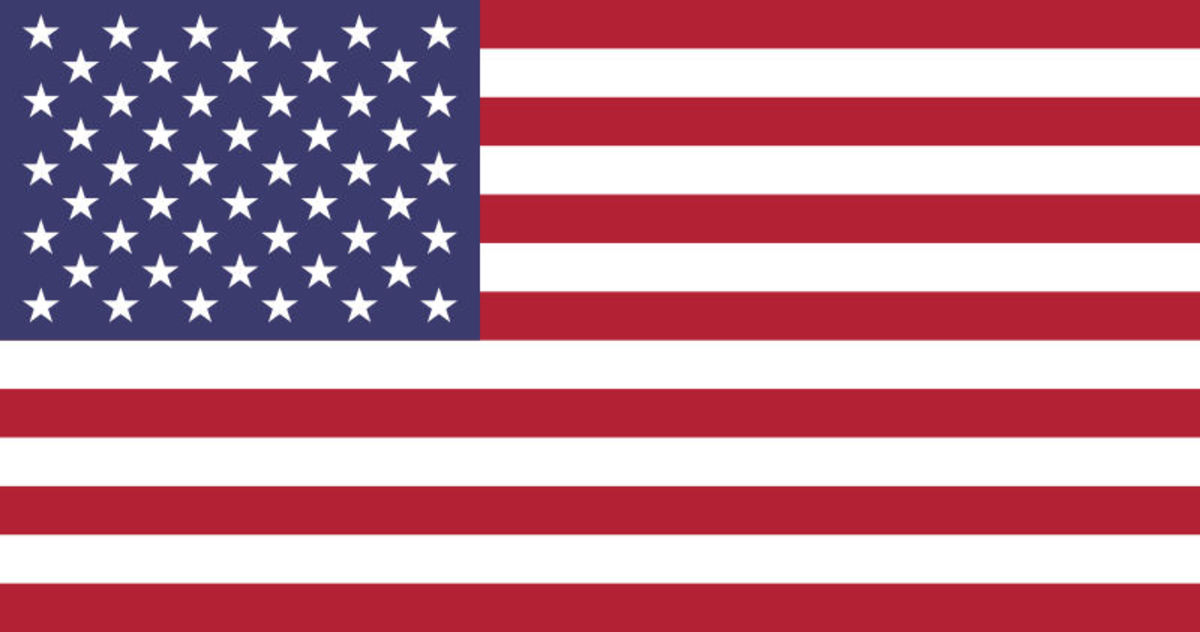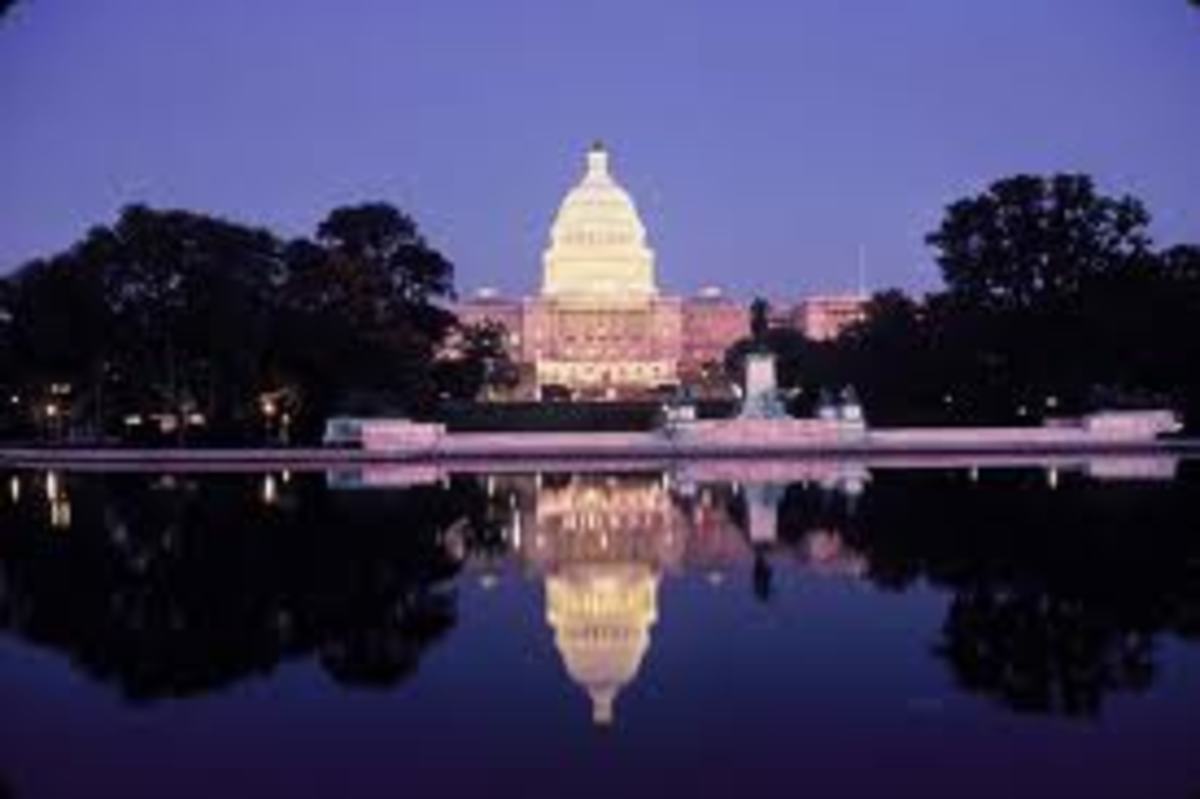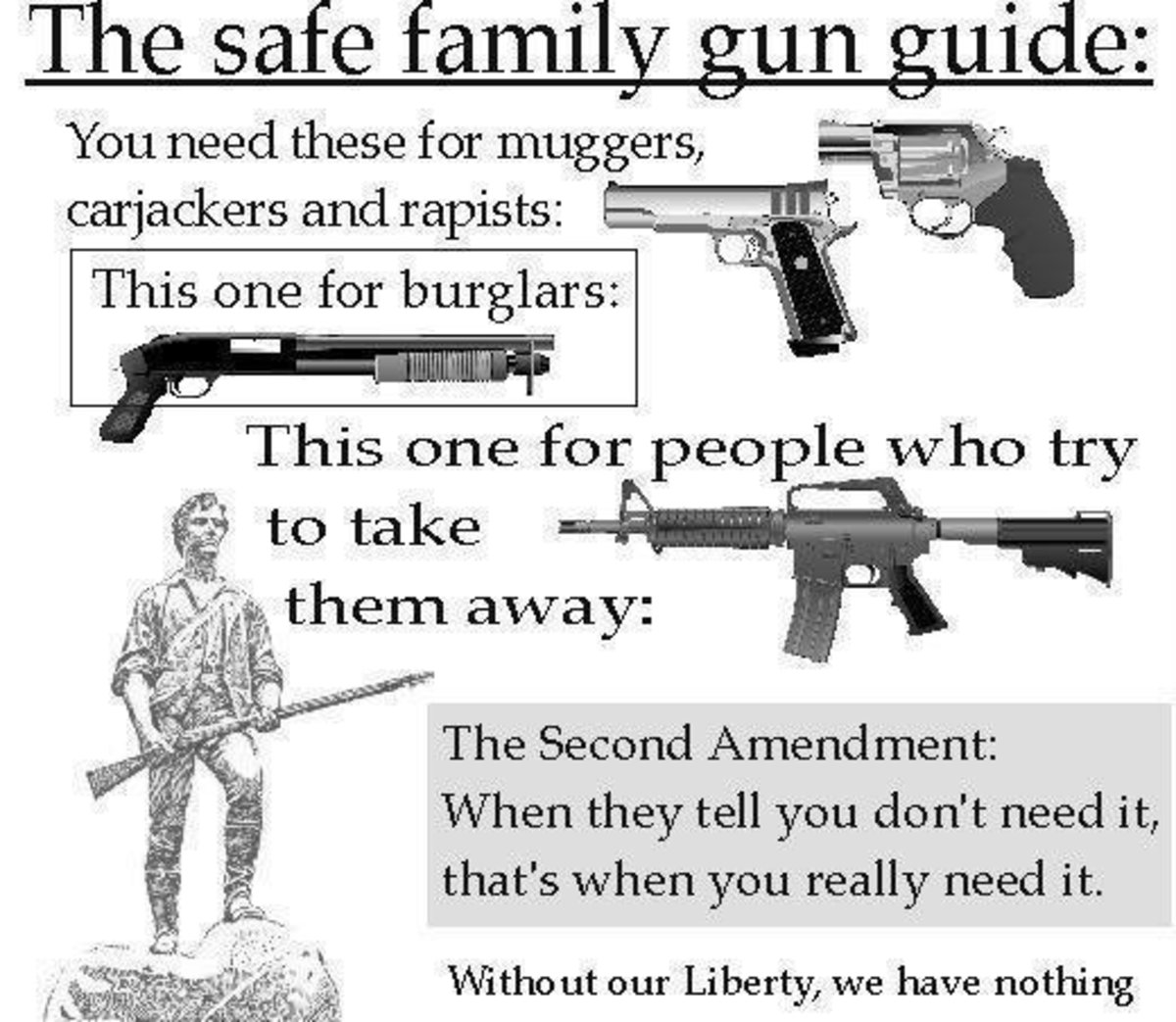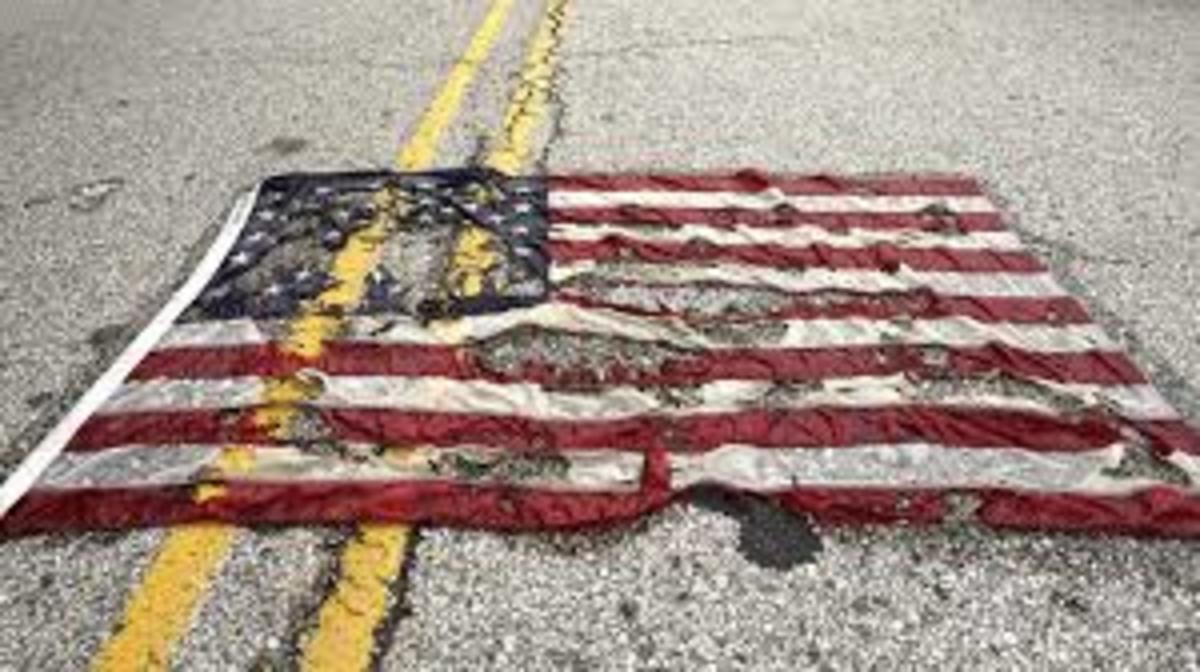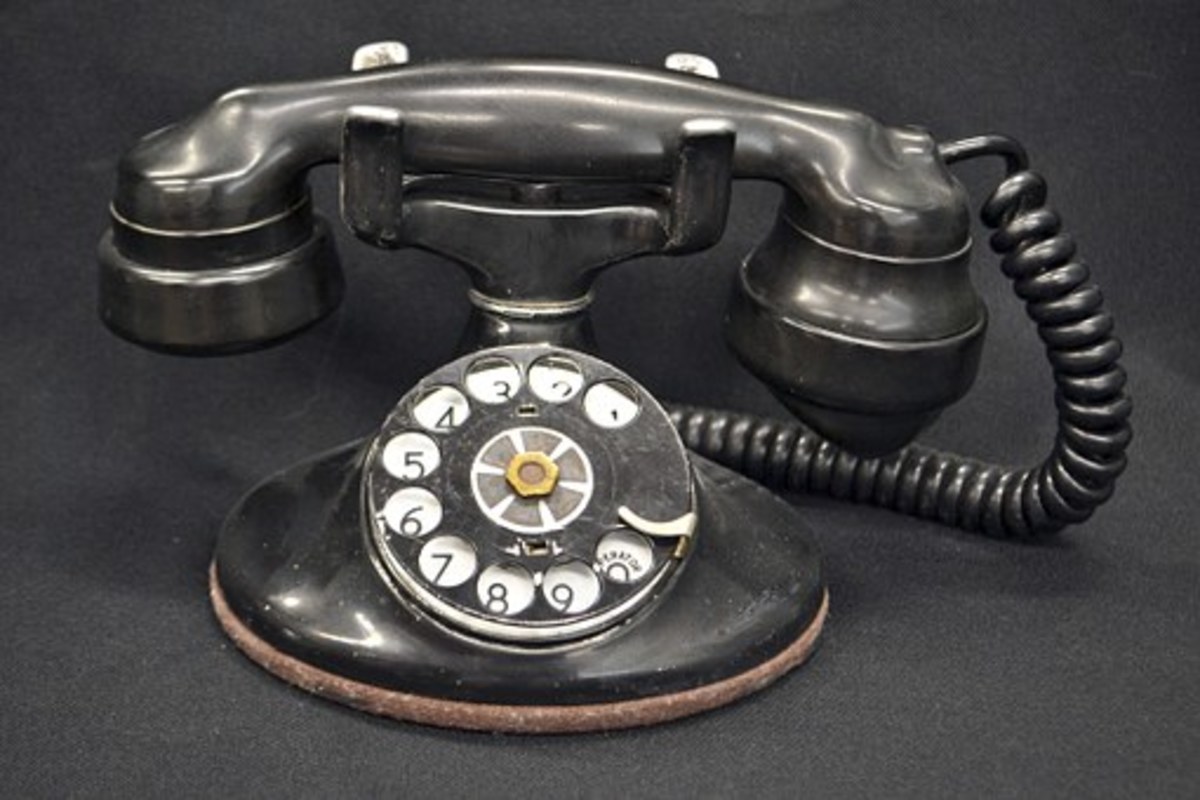The Bill of Rights: Know Your Rights or Lose Them
The Bill of Rights
The Bill of Rights is one of the single most important documents in our country's history. Those first ten amendments to The Constitution of the United States are what protect us. They were written in response to the tyrannical rule of the British monarchy. We have to hold these rights up, treasure them, respect them and understand them. Years and years of political correctness, "protections" and other skewed interpretations have twisted and warped the meanings of these essential rights that are given to all legal citizens of this country. Let's take a good look at each of them. See where we started and where we have ended up.
It's astounding to see how far we have perverted the true meanings of these important rights. I feel it's time we reclaimed these rights. Reclaimed them for their true meanings, and stood up for our rights, before it's too late.
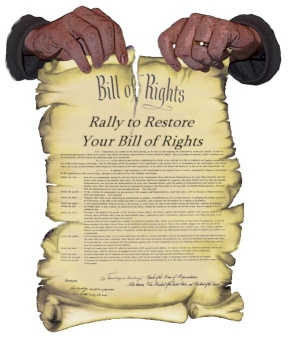
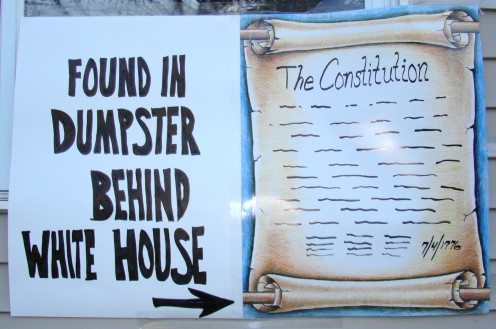
The First Amendment
We all know what the First Amendment is. It's the basic right to free speech. Well, let's look at it a little closer, break it down into it's individual parts, and really see what it says about our right to free speech.
The First Amendment: "Congress shall make no law respecting an establishment of religion, or prohibiting the free exercise thereof; or abridging the freedom of speech, or of the press; or the right of the people peaceably to assemble, and to petition the Government for a redress of grievances."
"Congress shall make no law respecting an establishment of religion,..."
OK, so Congress cannot sign into law any legislation naming any one religion the official religion of The United States. We cannot put one religion above another, the government cannot force it's citizens to practice a national religion. This was set in place in response to the religious oppression of English rule. It was the religious oppression of the English monarchy that caused this country to be founded in the first place. The first settlers of this country came over for freedom from religious persecution. This was put into place to protect the citizens of The United States from the very same thing from happening.
"...Or prohibiting the free exercise thereof;..."
Wow!!! How far have we come from this part??! Congress shall make no law prohibiting the free exercise of religion!!!! This says NOTHING, absolutely NOTHING about protection FROM religion! Every citizen has the right to freely practice their own respective religion. Prohibiting children from praying in school is in direct violation of the First Amendment of the Constitution!!! All those "civil liberties" people are screaming about from the rooftops regarding separation of church and state have perverted the First Amendment for their own, twisted agendas. The First Amendment was not put in place as a protection FROM religion, but a protection for the people to freely exercise their religious beliefs without the fear of persecution from a one religion run government. It was enacted to prevent any one religion from becoming dominant, and having too much influence in government affairs. It was not put into place to prevent people from praying in school, or from having crosses on their graves in a national cemetery. It was not put in place for the atheists to protest anything that resembles religion. I have the right, under The Constitution, to practice any religion that I choose.
"...or abridging the freedom of speech..."
The freedom of speech. Our very words are protected. Everyone has the right to speak about what they believe. Of course, this is within reason. There are still laws regarding slander, etc. But, as long as our speech is our opinion, or a matter of fact, we have the right to speak out freely, without fear of retribution. The government cannot tell you what you can and cannot say. They cannot jail, fine, or punish you for having, and voicing your opinions. Imagine living in a country where you do not have the right to say what you want... Sadly, our free speech rights are being violated every day. Look at the students who were suspended for wearing shirts with the American flag on them. Do they live in Communist China? No. They live right here in the United States of America. Pride in your own country gets you suspended, but protesters who burn the American flag are protected? Yes, flag burning is protected under the First Amendment, and despite the fact that I find it offensive, and reprehensible, it should be protected. Just because I don't agree with a statement, does not mean it is any less valid or any less deserving of protection. It is the unpopular opinions, the hard truths that are most in need of protection, because they are the most in jeopardy of being stomped on. I have the right to put any bumper sticker on my car, stating any opinion or belief that I have. I have the right to type this Hub about The Bill of Rights, and how I feel about them. I have the right to engage in a political or religious debate with anyone willing to talk to me. They don't have to agree with me, they don't have to like what I have to say, but we both have the right to say what we feel. How have we come so far? Some statements are more deserving of protection than others? That's not the way it works. Political correctness has warped the right to free speech. If your opinion is politically incorrect, your rights are less valid? Less deserving of protection? That is not free speech.
"...or of the press..."
Freedom of the press. The press has the right to report on events that happen in our country and the world that have an impact on our lives. The government cannot put limits on what the press can say, as long as it is true. Yellow journalism is not protected. The press cannot make up stories that are false. The press has the right to report on what the government is doing. They have the right to broadcast stories without fear of being censored or limited. The government cannot tell the press what to report, what to say, or what they can have an opinion on. This has been held up very well, or has it? The press has power that many of us do not. They also have a responsibility. They have a responsibility to present the truth. Sadly, they have fallen short of this, but that is another issue.
"...the right of the people peaceably to assemble..."
We have the right to assemble peacefully, and protest when we feel our rights have been violated or when we disagree with the actions of the government. The government cannot enact laws, jail us, fine us, or punish us for gathering together, peacefully, and protesting. Occasionally, a peaceful assembly can turn into a violent protest. Violent protests are not protected, and should be dealt with. Violence is never the answer if you want your voice to be heard. The Tea Party members are a good example of a peaceful assembly, yet they have been smeared as violent, and ignorant, even called racist. Not once has a tea party rally turned to violent riots or protests. A riot is not a peaceful protest. We do not have the right to riot, destroy property, or hurt others. I have the right to gather with others who share my views, and stand up for the rights I have.
"...to petition the Government for a redress of grievances."
If we feel we have been wronged, we have the right to demand that the government correct the problem. We have a right to air our grievances and ask that the government fix it. Congress cannot restrict that right. Basically, we have the right to complain when the government is not acting in our best interest. The government represents us. If we feel we are not being represented, we have the right to petition them to correct the problem. Why was this put in? Remember the first tea party? Taxation without representation? It is a means of recourse in the event of a government out of control. I think it's high time we made the most of our rights before they are taken away from us. This would be a good thing to look at right about now, when our government is not listening to the will of the people.
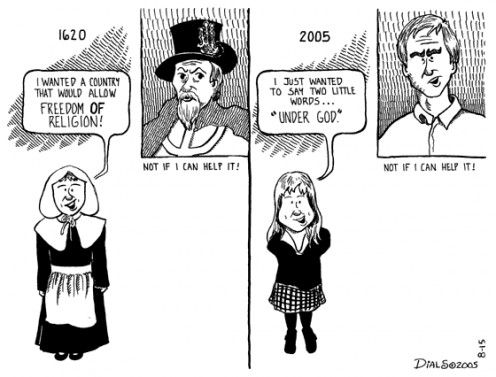
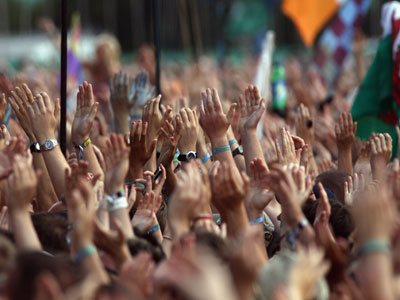
The Second Amendment
We are all familiar with The Second Amendment. The right to bear arms, but it's a bit more than that.
The Second Amendment: A well regulated Militia, being necessary to the security of a free State, the right of the people to keep and bear Arms, shall not be infringed.
"A well regulated Militia, being necessary to the security of a free State" Do we have militias anymore? We do and we don't. States had their own, regulated militia, set up to protect the individual states. The government wasn't this huge body that it is today. The federal government was small, put in place to protect the nation as a whole. Most of the power was in the hands of the individual states. It's the other way around now. And, the only militias you hear about now are of the "radical", "anti-government", or "political anarchy" variety. States had the right to protect themselves. We still do. A lot of attention has been drawn to Arizona as of late. Arizona found themselves in a bad position. The citizens there are not being protected by the federal government, and kidnapping rates are approaching that of Bogota, Columbia. How can a city in the United States of America have a kidnapping rate second to that of a drug-lord controlled city like Bogota? The state acted in the best interests of the citizens of the state. They have every right to do so. So, if they have the right to do so, protected by The Constitution, and the very lives of their citizens were at risk, why are they under fire for doing so? Again, political correctness. How dare we even potentially offend anyone in an effort to protect the lives of people?
"the right of the people to keep and bear Arms, shall not be infringed."
Guns are bad! Oh no, we shouldn't have guns. No one should have guns. Guns kill people. No, guns are not bad. People who use guns to maliciously hurt others are bad. People should be allowed to have guns. It says so in the Second Amendment. We have the right to bear arms and those rights should not be infringed upon. Guns do not kill people. People use guns to kill people. I am going to use something I have heard a few thousand times, if guns kill people, pencils misspell words, cars make people drive drunk and spoons make people fat. It's about choices. There is a such thing as PERSONAL RESPONSIBILITY!!!! Should violent felons be allowed to have guns? No, of course not. They lost that right when they committed a violent crime. Again, this goes to personal responsibility. For the most part, the people committing crimes involving guns, don't have a license for them. People with a license to carry a gun are far less likely to commit a gun crime.
This right has gotten attention recently, after the Supreme Court vote on the issue. The Supreme Court voted in favor of protecting the right to bear arms. Truthfully, I don't understand how a vote on the issue was even necessary. The Supreme Court's job is to uphold the Constitution, not decide what parts of it they agree with.
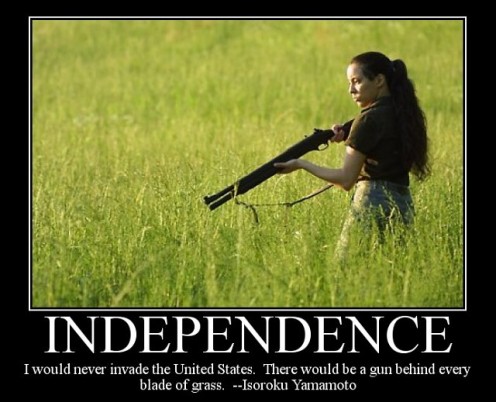
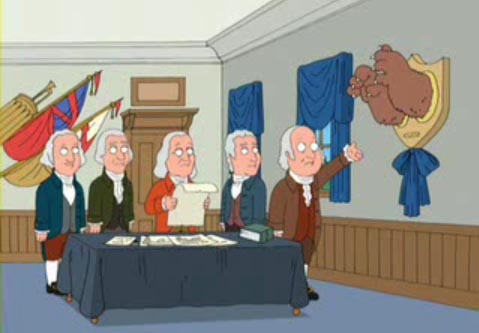
The Third Amendment
The third amendment deals with a clear invasion of rights to households. It is less of an issue now than it was at the time The Constitution was written, but it is still an important right to consider.
The Third Amendment: No Soldier shall, in time of peace be quartered in any house, without the consent of the Owner, nor in time of war, but in a manner to be prescribed by law.
Basically, the government cannot take over your house, and house soldiers there without your consent. I can't imagine a situation where this would take place. In times of war, they have left room for exceptions. But, generally speaking, your house cannot be taken from you, to house soldiers. I know this was done during the Revolutionary War by the British, and also during the Civil War.
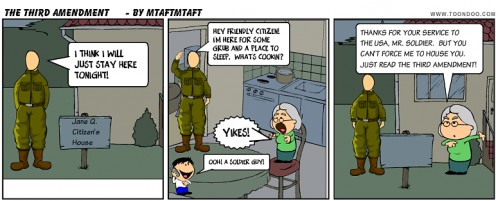
Abuse of Third Amendment
- Nevada cops sued for storming home they wanted for lookout - Washington Times
A Nevada family's lawsuit against police claims they stormed one man's home to use it for a lookout site for a criminal investigation of a nearby residence, shot the owner and owner's dog with pepperball rounds, and committed a slew of other Third Am
The Fourth Amendment
The Fourth Amendment deals with illegal search and seizure. This is the reason police need search warrants.
The Fourth Amendment: The right of the people to be secure in their persons, houses, papers, and effects, against unreasonable searches and seizures, shall not be violated, and no Warrants shall issue, but upon probable cause, supported by Oath or affirmation, and particularly describing the place to be searched, and the persons or things to be seized.
"The right of the people to be secure in their persons, houses, papers, and effects..." This means you, your stuff, your house, and anything and everything you own. It's yours.
"...against unreasonable searches and seizures, shall not be violated," The police cannot just storm in, for no reason, and start rifling through your stuff. They have to have a reason to do it. There are corrupt cops out there, and there are corrupt people out there. If it were not for this right, the cops could come into your home, for no reason, any time they wanted, and just search around until they find something. The case could be made that if you aren't doing anything wrong, you have nothing to worry about, but could you imagine the massive invasion of privacy? The rampant destruction of personal property? The terrified police state that would result?
"no Warrants shall issue, but upon probable cause, supported by Oath or affirmation" The police need a warrant, and a good reason to search you, your home or your belongings. This is something most people know from watching any tv crime drama.
"and particularly describing the place to be searched, and the persons or things to be seized." The warrant has to say what they are looking for, where they want to look, and what they can take. If the police come in with a warrant to search your garage, looking for a weapon, they cannot search your living room and take your home computer. This protects you. It protects your privacy, protects you from a blank warrant allowing the police to search all your stuff, and just take whatever they want.
The police need a warrant to search you. In order to get a warrant, they need a reason. The warrant must describe what they are looking for, where they can look, and what they plan on taking. If they are looking for blood evidence, they can take anything they find with blood on it. If they are looking for computer files or paperwork, they can take any papers, your computer, etc, but cannot take anything else. The fourth amendment just spells out what can and can't be done.
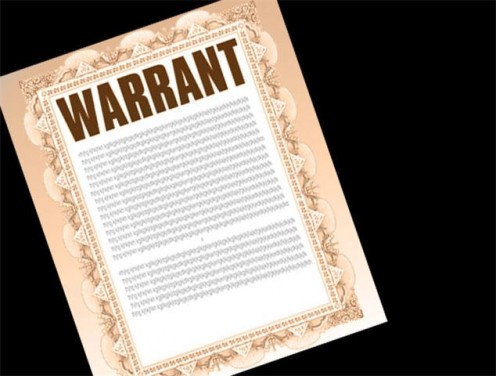
The Fifth Amendment
The fifth amendment...I am sure we have all jokingly plead the fifth at some point in our lives, so we all know what it is, and what it means. It's the right that protects us from self-incrimination and double jeopardy. It's a little more than that, though.
The Fifth Amendment: No person shall be held to answer for a capital, or otherwise infamous crime, unless on a presentment or indictment of a Grand Jury, except in cases arising in the land or naval forces, or in the Militia, when in actual service in time of War or public danger; nor shall any person be subject for the same offence to be twice put in jeopardy of life or limb; nor shall be compelled in any criminal case to be a witness against himself, nor be deprived of life, liberty, or property, without due process of law; nor shall private property be taken for public use, without just compensation.
"No person shall be held to answer for a capital, or otherwise infamous crime, unless on a presentment or indictment of a Grand Jury" You must be formally accused of a crime before you are tried or convicted of a crime. You cannot be punished for something before you are accused of it.
"except in cases arising in the land or naval forces, or in the Militia, when in actual service in time of War or public danger" The military has it's own laws and code of justice. The rights and rules are different during wartime, and in the military.
"nor shall any person be subject for the same offense to be twice put in jeopardy of life or limb" This is the 'double jeopardy' issue. If you are tried for a crime, and found innocent, you cannot be tried a second time for the same crime. If you are tried for a crime, and found guilty, they cannot further punish you, by trying you again for the same crime.
"nor shall be compelled in any criminal case to be a witness against himself" This is where we get the phrase pleading the fifth. You cannot be forced to make any testimony which would be an admission of guilt of a crime.
"nor be deprived of life, liberty, or property, without due process of law" The police cannot kill you, take your belongings, or throw you in jail, without following the rules of law. You cannot be thrown in jail for the rest of your life, unless you are first, accused of a crime, tried and found guilty for the crime and sentenced.
"nor shall private property be taken for public use, without just compensation." This one seems to be a bit of an issue at times. The government sites eminent domain, and seizes private property, paying out fractions of what property is worth, and for public use, such as highways, schools, etc. They cannot just take your property and not pay you for it. They also cannot take your private property for their own private needs. This means that Senator So-and-so cannot take your house to build himself a personal tennis court.
I Plead the Fif
The Sixth Amendment
The sixth amendment deals with issues of criminal court cases. Rights of the accused, and that sort of thing. People accused of a crime have rights. These are set in place to protect the accused, and ensure a fair trial. Just because you are accused of a crime, does not automatically mean that you are guilty. "Innocent until proven guilty".
The Sixth Amendment: In all criminal prosecutions, the accused shall enjoy the right to a speedy and public trial, by an impartial jury of the State and district wherein the crime shall have been committed, which district shall have been previously ascertained by law, and to be informed of the nature and cause of the accusation; to be confronted with the witnesses against him; to have compulsory process for obtaining witnesses in his favor, and to have the Assistance of Counsel for his defense.
"In all criminal prosecutions, the accused shall enjoy the right to a speedy and public trial..."
You cannot be held indefinitely for a crime. You have the right to a speedy trial. Granted, depending on the crime, a trial can seem to take forever, from the Grand Jury hearing, to finding jury members, to pre-trial hearings, then the trial itself; it's a long process. Truthfully, I think the process has gotten a little longer than is usually necessary. Continuances only slow down the process more. Sometimes it's used as a tactic to delay things. Sometimes it's beneficial, and sometimes it's just a nuisance.
"by an impartial jury of the State and district wherein the crime shall have been committed, which district shall have been previously ascertained by law..."
Finding an impartial jury for some cases can be very difficult due to media coverage of high profile cases. But everyone has the right to a trial by an impartial jury of their peers. The jury selection process is very thorough and does it's best to weed out jurors who would be easily swayed one way or the other. If I were ever called for jury duty again, I would not be selected for certain cases based on my personal experiences and my personal opinions. Thus making the jury as impartial as possible.
You must be tried in the State and district where the crime was committed. Certain exceptions apply to this, if special requests are made to the court. This is seen in instances of some high profile crimes, where the accused person may not get the most fair or impartial jury in the district where the crime was committed. A different venue may be sought in order to get a more impartial jury selection.
"and to be informed of the nature and cause of the accusation..."
You must be told what you are being tried for. We have all seen at least one of the dozens of legal television shows, like Law & Order. The accused stands up, the judge says "So-and-so, you have been accused of the crime of whatever and whatever, how do you plead?" How can you be tried for a crime, present a defense to that accusation, if you have no idea what you are being accused of? Think of The Inquisition. People were taken away, held without reason, not formally accused of anything, tortured and sometimes even killed. What would our country be like if this were to happen here?
"to be confronted with the witnesses against him; to have compulsory process for obtaining witnesses in his favor..."
If accused of a crime, you have the right to confront the witnesses who are testifying against you. You have the right to examine their testimony, look at the evidence, and question the witnesses. Usually, this is done through an attorney on your behalf. They cannot just present witness testimony at a trial, and not give you the opportunity to question it, or cross-examine it, if you will.
You also have the right to present your own witnesses to support your defense. If someone says you did this or that, you have the right to bring forth people who have different testimony in an effort to defend yourself against the accusations.
"and to have the Assistance of Counsel for his defense."
The right to an attorney. This is further protected under the Miranda Rights. Let's go back to the legal shows. A person gets arrested, and the cop reads him or her their rights. "...you have the right to an attorney, if you cannot afford one, one will be appointed to you by the state." You have the right to legal representation. Of course, some people waive this right, and choose to defend themselves. But then, we have all heard the saying that a man who represents himself in court has a fool for a client. There is a reason for having an attorney, no matter how much you know, or think you know, about the law. Court cases can get emotional. Having someone represent you can keep that in check. Lawyers have knowledge that most of us could never have, access to resources that most of us do not.
All of this protects you from trials that are one-sided. You have the right to defend yourself.
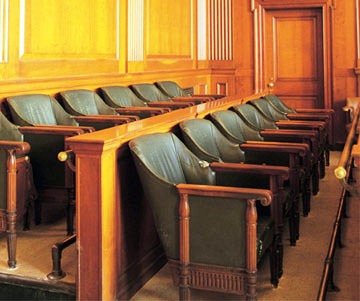
The Seventh Amendment
The Seventh Amendment also deals with legal matters relating to trial issues. This is a small one, so I won't focus too much attention on it. It's pretty self explanatory, and doesn't require much further discussion or clarification.
The Seventh Amendment: In Suits at common law, where the value in controversy shall exceed twenty dollars, the right of trial by jury shall be preserved, and no fact tried by a jury, shall be otherwise re-examined in any Court of the United States, than according to the rules of the common law.
"In Suits at common law, where the value in controversy shall exceed twenty dollars, the right of trial by jury shall be preserved..." Pretty basic, right? At that time, twenty dollars was a sizable sum of money. If someone took something worth that much, a trial by jury was preserved. Anything less than that, a jury trial was not necessary. This one doesn't really need much further examination.
The Eighth Amendment
The Eighth Amendment deals with treatment and fines given to those accused and convicted of a crime. It protects the accused from unfair treatment or abuse.
The Eighth Amendment: Excessive bail shall not be required, nor excessive fines imposed, nor cruel and unusual punishments inflicted.
"Excessive bail shall not be required..." If you are arrested for a crime, there are limits to the bail they can set for you. If you are arrested for a minor charge of jaywalking, or something of that nature, they cannot give you a bail of $1,000,000.
"...nor excessive fines imposed..." Same basic idea as above. If you are convicted of a minor crime, you cannot be given outrageous, excessive fines as punishment for the crime.
"...nor cruel and unusual punishments inflicted." This is an interesting one, that often times, gets taken advantage of. Inmates on death row, knowing that such an amendment is in place, will demand some form of cruel and unusual punishment as the form of execution. This stirs all kinds of controversy and debates. This is the amendment that calls for fair and decent treatment of prisoners.
Some issues have arised regarding this from the State of Arizona, where Maricopa County Sheriff Joe Arpaio, has revolutionary ideas of prisoner reform and treatment. His treatments range from making prisoners wear striped prison jumpsuits, and pink undergarments, to putting them to work (cutting costs at the prison), and other punishments. None are abusive, nor cruel. Prison is not a vacation, a place to make further criminal connections, nor a break from the real world. Prison is supposed to rehabilitate criminals. Some call Sheriff Joe's treatment of prisoners as cruel and unusual, and while it may be different, there is nothing cruel or unusual about it.
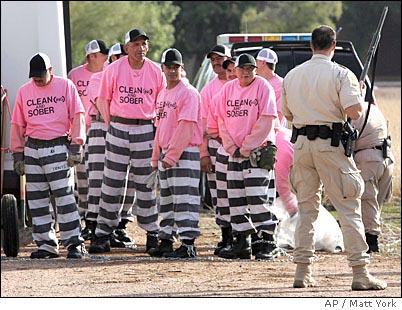
The Ninth Amendment
The Ninth Amendment is a basic reminder that the rights given here, are not to be twisted in order to take other rights away from the people.
The Ninth Amendment: The enumeration in the Constitution, of certain rights, shall not be construed to deny or disparage others retained by the people.
Again, this one is pretty self explanatory. The rights numbered above should not be twisted in order to deny people of other rights.
The Tenth Amendment
The Tenth Amendment is also another pretty basic, self explanatory one. The powers not given to the government, belongs to either the states or the people, themselves.
The Tenth Amendment: The powers not delegated to the United States by the Constitution, nor prohibited by it to the States, are reserved to the States respectively, or to the people.
This Amendment is one that is heavily under attack. When the country was founded and when this document was written, a majority of the governing powers were given to the States, not the federal government. The federal government was far smaller, and was intended to be that way. A majority of the power was reserved for the States themselves. We are The UNITED STATES of America. Our country was given the name United States of America for a reason. The States had the majority of the power and the federal government was there to oversee things, protect the states, and deal with major disputes. It was not created to control the states.



